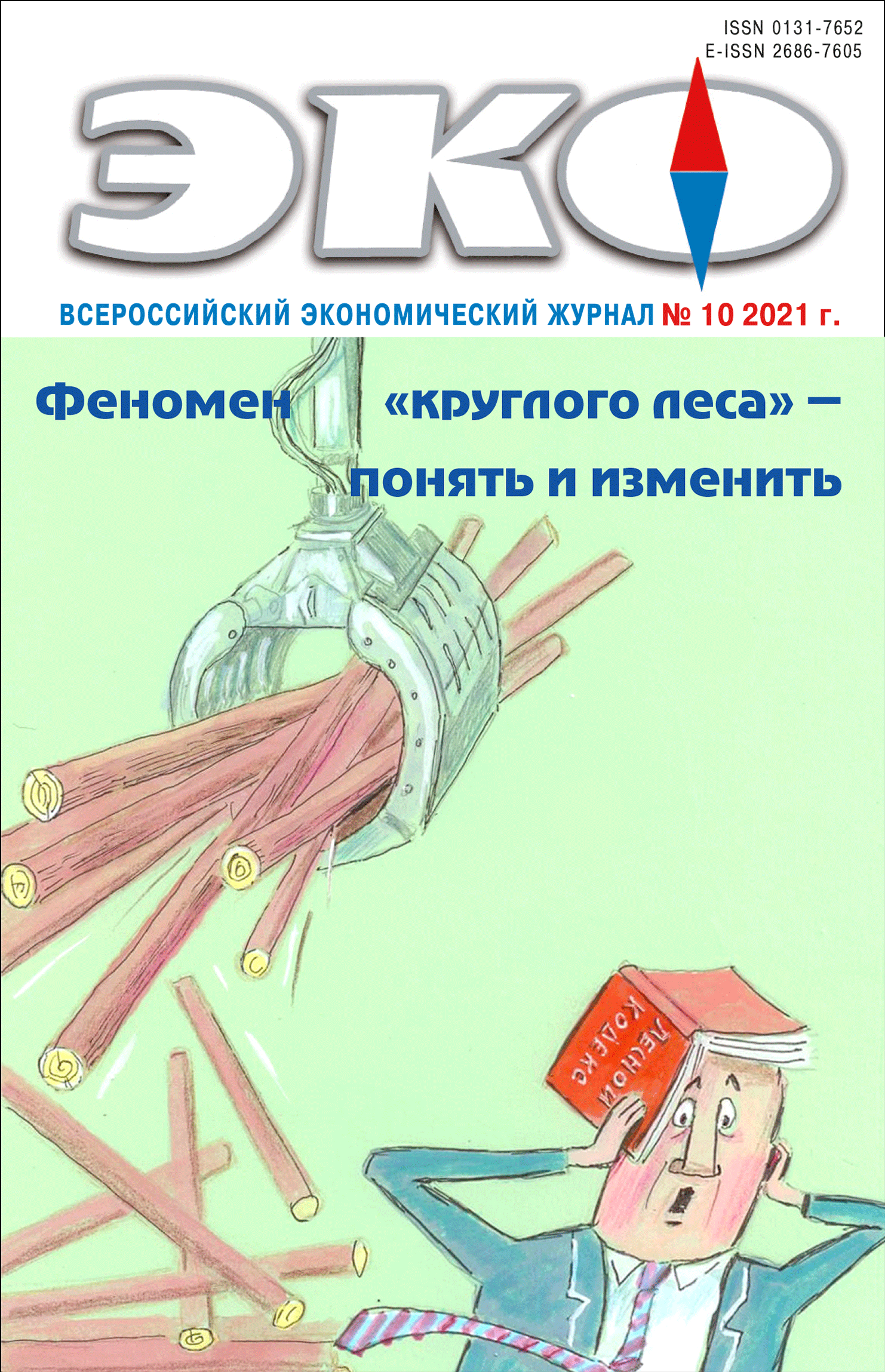ASPECTS OF REAL ECONOMY
Published 2021-09-27
Keywords
- fisheries,
- Murmansk Oblast,
- aquatic bioresources,
- fish products,
- bioresource charge
- national economic efficiency ...More
How to Cite
1.
Vasilyev А, Lisunova Е. How to Achieve an Increase in the National Economic Return from the Fishing Industry. ECO [Internet]. 2021 Sep. 27 [cited 2026 Jan. 18];51(10):133-57. Available from: https://ecotrends.ru/index.php/eco/article/view/4326
Abstract
The paper analyzes the extent to which significant price increases for fish products in the period after 2013 are justified. Since 2015, wholesale prices have increased to the level of export prices. Moreover, the fishing industry enjoys large state preferences in taxation and fees for bioresources. Because of miscalculations in state regulation of the industry, Russian fishing vessels prefer not to call at Russian ports – they unload their catches, make repairs and be serviced in foreign ports. As a result, there is a shortage of fish products on the domestic market, accompanied by rising prices. Service production and ship repair have fallen into disrepair. To correct this situation, the author proposes to change the order of charging for bioresources – to cancel it for those vessels that unload in Russia and increase it for those who export catch in excess of the volumes needed to implement the Doctrine of Food Security.References
- Александрова М. А., Васильев А. М., Карташов М. В. Оценка морских экосистемных услуг на базе основных промысловых биоресурсов как основа устойчивого состояния большой морской системы и сохранения биоразнообразия // Вода и экология. 2018. № 2(74). С. 70–86.
- Васильев А. М., Затхеева В. А., Лисунова Е. А. Вклад российского рыболовства, в том числе арктического, в достижение показателей «Доктрины продовольственной безопасности Российской Федерации» // Арктика: экология и экономика. 2020. № 1 (37). С. 15–25. Doi: 10.25283/2223–4594–2020–1–15–25.
- Львов Д. С. Перспективы долгосрочного социально-экономического развития России // Вестник Российской академии наук. 2003. Т. 73. № 8. С. 675–697.
- Михайлов А. Как удар молотком. Приморские регионы России – против аукционного распределения квот на вылов рыбы // Российская газета. 2018. № 254 (7717).
- Налоги в гражданском обществе. Кому принадлежит власть в России. СПб.: Фонд «Земля и благосостояние общества», 2003. 188 с.
- Путин В. В. Минерально-сырьевые ресурсы в стратегии развития российской экономики // Записки горного института. 1999. Том 144(1). С. 3–9.
- Состояние сырьевых биологических ресурсов Баренцева и Белого морей и Северной Атлантики в 2019 г. / ПИНРО им. Н. М. Книповича; отв. ред. Е. А. Шамрай. Мурманск: ПИНРО им. Н. М. Книповича, 2019. 139 с.
- Jørgensen Anne-Kristin og Geir Hønneland. Felles hav, felles utfordringer: En sammenligning av rammevilkårene for fiskerivirksomheten i Norge og Russland (‘Common Sea, Common Challenges: A Comparison of Framework Conditions for the Fishery Sector in Norway and Russia’). FNI Report 7/2015. Lysaker, Norway, FNI, 2015. 82 p. URL: https://www.fni.no/publications/felles-hav-felles-utfordringer-en-sammenligning-av-rammevilkarene-for-fiskerivirksomheten-i-norge-og-russland-common-sea-common-challenges-a-comparison-of-framework-conditions-for-the-fishery-sector-in-norway-and-russia (дата обращения: 02.04.2021).
- Vasiliev A. M., Komlichenko V. V., Lisunova E. A. Relationship between the Russian fishing fleet and domestic ports as the core for performing its state mission. IOP Conference Series: Earth and Environmental Science (EES) 302 (2019) 012141. (4th International Scientific Conference «Arctic: History and Modernity» 17–18 April 2019, Saint Petersburg, Russian Federation). Doi:10.1088/1755–1315/302/1/012141. URL: https://iopscience.iop.org/article/10.1088/1755–1315/302/1/012141/pdf (дата обращения: 05.06.2021).

